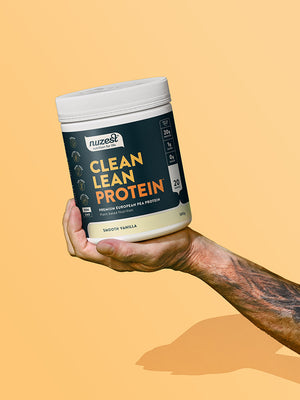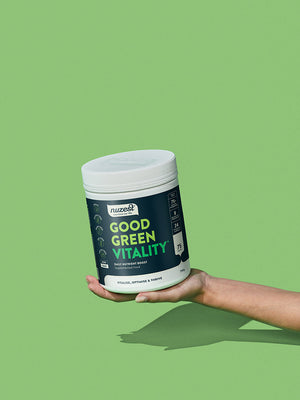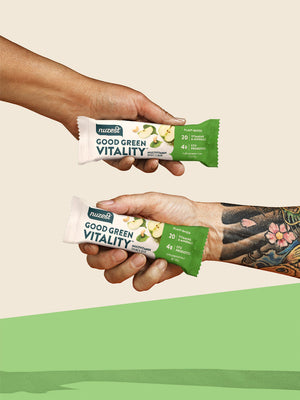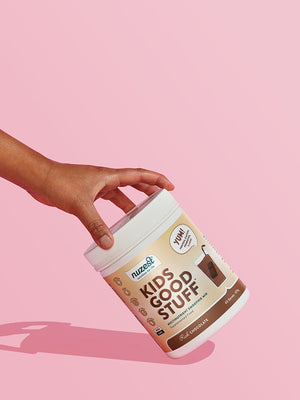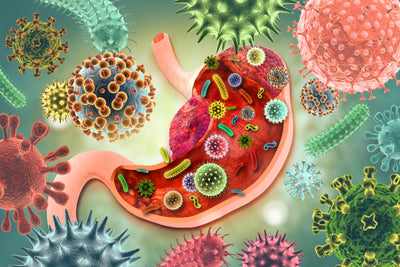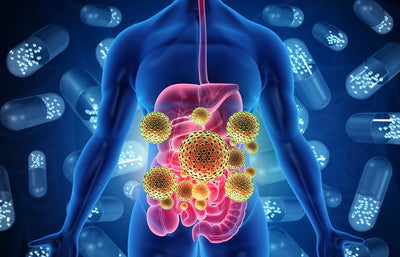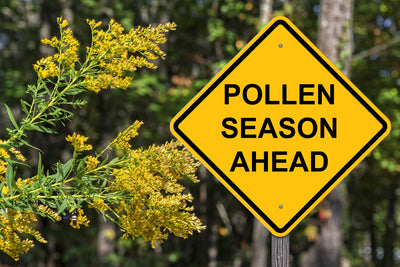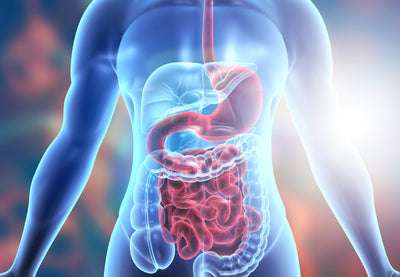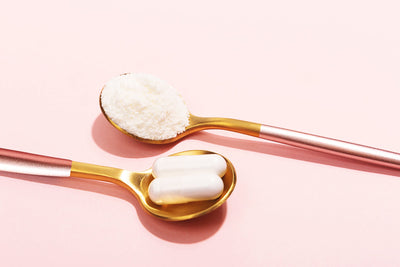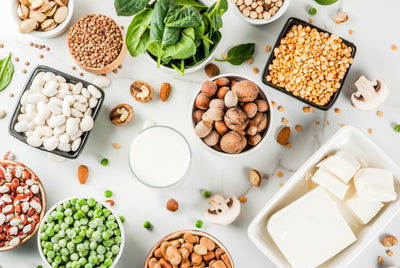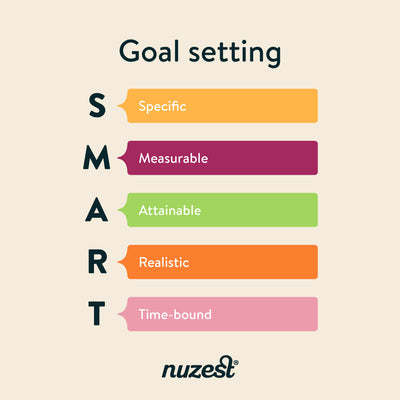
5 min read
Are you tired all the time?
Posted By
Robert Verkerk
If you are, you're not alone. Far from it, in fact. It's one of the common most reasons people go and see their doctor. The trouble is, most doctors can't do much to help. That's hardly surprising given they don't learn much about non-specific conditions like fatigue during their medical training.
When someone suffers from persistent fatigue, many aspects of their life suffer. The quality of their work, the nature of their relationships or family life, their ability to go out, have fun, holiday, exercise or even party are often affected dramatically. Depression and anxiety may be triggers for fatigue, or they may be causes. The bottom line is that all kinds of events in life ones that any healthy person would find manageable or even enjoyable become a matter of trepidation. A doctor confronted with someone who exhibits symptoms of depression or anxiety often prescribes SSRI drugs (antidepressants). In the US, up to 10% of the population is taking an antidepressant at any one time. Things aren't much different in most other industrialised countries.
You may also experience fatigue at certain times, and not others. OK, if you haven't managed to get enough sleep, you've got good reason. But if you're sleeping, or trying to sleep, and you just can't seem to recover and feel energised, or you lose all your energy at particular times of day, such as after you've eaten, or when you've taken a limited amount of exercise, you're starting to feel your fatigue and malaise a real problem.
There are always underlying reasons for fatigue-related conditions, but these can't always be identified. In some cases, fatigue can be related to serious underlying diseases, which yet have been diagnosed, such as heart disease, thyroid diseases, type 2 diabetes, kidney or liver disease, or various infectious diseases, such as upper respiratory tract infections, gastric or duodenal ulcers, Lyme disease, pneumonia or periodontal disease. That's why it's always important to see a doctor or other qualified or experienced health professional to check for any possible, serious underlying causes.
While any of these conditions may be a cause of the fatigue, they may not be the sole cause and they may not have been the trigger that led to the disease in the first place. It may also be that the body struggles to resume normal, healthy function because of on-going mediators or perpetuators such as stressful life events (e.g. relationship or work-related challenges, financial difficulties, loss of a loved one), a poor diet or a particular nutrient deficiency, insufficient physical activity or relaxation, poor sleep quality, smoking, too much drink or other unhealthy habits.
Oftentimes however, the reasons for someone's fatigue are complex, unclear and non-specific. Doctors and health professionals increasingly refer to this as 'tired all the time' syndrome, or TATT. Not for a lack of trying, the fatigue simply can't be traced to a particular underlying disease. This is the case for over half the people who present to their doctors with fatigue - and the millions who don't. Knowing there are some key things we can all do to help our bodies can be a lifesaver. We'll give you more detail in upcoming blogs, but three key processes stand out as among the most important.
The first involves supporting the energy-producing 'factories' in our cells, the mitochondria. The second is about managing the amount of oxidative stress within the body. Both of these are strongly dependent on eating pattern and the quality of the nutrients you eat and absorb. It's also about how you move, rest and sleep. The third key process is about providing the best possible environment for your body, one that nurtures it and allows it to function optimally. This means learning to be good to yourself, including eating as well as you can, taking particular supplementary nutrients, resting right and sleeping well, through to finding appropriate ways of being physically active and finding the best ways of transforming stress. Find out more in our forthcoming blogs...
Related news
min read
An Introduction to Gut Health & Nutrition – 5 Must See Articles
Gut health significantly affects overall wellbeing, influencing brain function, immunity, and metabolism. A balanced gut microbiota, influenced by diet and environment, can potentially enhance health, aid digestion, and reduce allergies. The roles of probiotics and prebiotics in gut health are also discussed.
min read
Probiotics vs. Prebiotics
Unleash gut health with probiotics and prebiotics! Strengthen digestion, immunity, and overall well-being. Try Nuzest's Good Green Vitality for convenient support with 8 billion CFU of probiotics. Take charge now!
min read
The Link Between Gut Health & Allergies - Plus 5 Top Tips to Help
Discover the link between gut health and allergies, and how the gut microbiome influences the body's immune response to allergens. Learn how adopting a balanced diet with prebiotics and probiotics can support gut health, reducing the risk of allergic reactions. Explore solutions for allergy relief and fostering a healthier gut with Nuzest’s multi-nutrient formula, Good Green Vitality.
min read
The Great Diet Debate: Unravelling the Tapestry of Popular Eating Plans
Exploring popular diets such as the Mediterranean, Ketogenic, Plant-Based, Paleo, and Intermittent Fasting, this overview highlights their principles, benefits, and considerations. It emphasizes the importance of finding a dietary pattern that aligns with individual health goals and preferences, while suggesting the potential benefits of incorporating a multi-nutrient supplement for overall health.
min read
The Gut Connection: How to Improve Your Digestion and Gut Health in 6 Steps
Discover the significance of gut health and its impact on digestion and overall well-being in this insightful article. Learn six practical steps, including maintaining a balanced diet, staying hydrated, managing stress, and using antibiotics wisely, to promote a healthy gut and enhance vitality.
min read
Does Gut Health Affect Your Immune System? | Do These 6 Things
The gut microbiome, which consists of trillions of bacteria in our digestive tract, plays a crucial role in supporting our immune system and overall health. Consuming probiotics and prebiotics, staying hydrated, managing stress, limiting processed foods, and engaging in outdoor activity and exercise are effective strategies to promote a healthy gut and enhance immunity.
min read
What is Collagen? Types, Sources and Benefits of Supplementation
Collagen is essential for joints, bones, muscles, ligaments, tendons, cartilage, skin, hair and nails.2 It is one of the primary structural proteins of connective tissue and plays a crucial role in the body by cushioning, strengthening, hydrating, binding, and connecting tissues together.3 Connective tissues are able to provide physical and mechanical support through the collagen, elastic and reticular fibres
min read
Kids Good Stuff for Skin Health
How can you ensure your kids have healthy skin? A part from the obvious, what nutrients can we provide our kids to ensure their skin stays in tip top shape?
min read
Maximising Mood In Your Kids
Almost 1 in 7 children and adults aged 4-17 had been diagnosed with a mental health disorder. Amy Butler discusses good nutrition and lifestyle modifications, that can help to reduce the risk.
min read
Long-Lasting Energy For Kids
Children and adolescents are going through massive periods of growth and development. To keep up with the demands of school, extracurricular activities, sports and friendships, kids often need a bit of an energy boost. In our latest blog we break down some specific nutrients for energy, to help support growing kids, and the best places to source them from.
min read
Setting Health Goals & Staying Motivated in 2021
Use this tried and tested goal strategy to set smaller, specific goals to avoid the overwhelm of unrealistic and vague health objectives.







